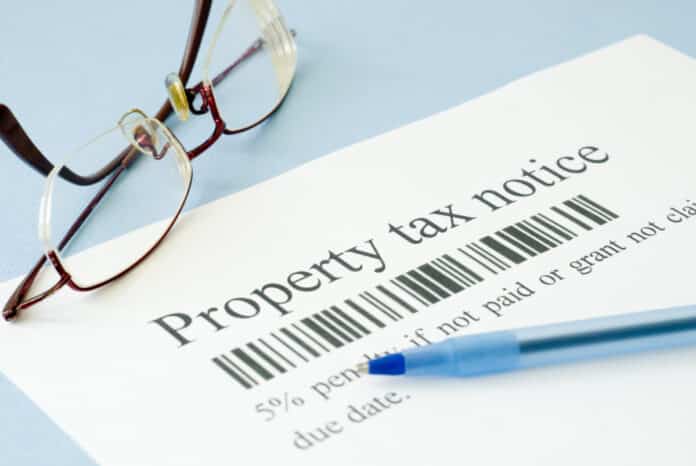GREENFIELD — It’s property tax season in Indiana, and though the economy has been through tough times in the past year, local property owners should not be surprised to find themselves paying more than they have in the past.
“There was no indication, really, of an economic downturn as far as Hancock County,” Hancock County Assessor Katie Molinder said.
Property valuations in the county have risen consistently in recent years, and this year proved to be no exception. Molinder said property prices were up significantly in every township in the county. That led to what property owners can expect to see on their taxes as a 7% median increase.
“We had more sales than we’ve ever had before,” Molinder said. “We definitely had more new construction.”
Several things likely led to the increase in home purchase prices, she said. Purchasers have had increased access to low-interest loans, which may mean economic difficulties led some people to be able to make home purchases they otherwise would not have. The county has also seen “spillage” from the north side of Indianapolis, Molinder said, with purchasers willing to pay a high price for a home in a suburban neighborhood with a relatively short commute.
“When a house goes on the market, it sells for a lot and it sells right away,” Molinder said.
Along with a group of other “doughnut” counties in the area around Indianapolis, the Hancock County assessor hired an analyst to look at the impact of COVID-19 on commercial property. In that sphere as well, Molinder said, the county did not see much of a downturn.
One exception was hotels: During a period of low travel, those properties decreased in value by about 10% to 20%. Other types of commercial property saw little change in their valuation.
“The areas that remained stable were your retail properties, walk-in, sit-down restaurants, theaters and office spaces,” she said.
While most commercial real estate remained steady, the exception was industrial warehouse buildings. Molinder said that area received a major boost from sales in the preceding year, including the Amazon facility. The company bought that space for $120 per square foot, which Molinder said is “unheard of.” A more typical price would have been $60 per square foot.
Molinder said fairness is an important principle for her office, and she wants to ensure everyone is paying a fair share. People who are surprised by an increase in their personal property valuation this year do have an option to appeal the county’s assessment.
During the two previous appeals cycles she’s overseen, Molinder said, appeals have been low; a healthy number for a government to receive is about 1% of assessed properties. She said the county has seen a slight increase in appeals this year, but is working hard to be transparent about how taxes were assessed.
Taxpayers are able to complete the appeals process on the assessor’s website, and the department included a QR code with tax material that allowed property owners to access it directly. To show anyone considering filing an appeal why their taxes may have gone up, the department included a step in the process that shows filers the prices homes in their neighborhood have recently sold for.
“We saw a lot of appeals start, but not finish in that program,” Molinder said.
If taxpayers do decide to file an appeal, they can do so online, in the assessor’s office, or through having a form mailed to them. Once an appeal is filed, Molinder holds an informal conversation with the taxpayer in which she explains why the value was assessed and asks the owner whether they have information to support a lower assessment. Owners can also hire an appraiser at this point, though Molinder cautioned that this is expensive. Most appeals, she said, are resolved or withdrawn at this point.
If it can’t be resolved, the appeal will go to the county’s Property Tax Assessment Board, where it will be reviewed by three neutral real estate professionals. The board is not as strictly bound by data as the assessor’s office and can make a more objective determination about a property’s value.
“It is a very formalized process, and we all take it very seriously,” Molinder said.
If a taxpayer is not happy with the result of that process, they can appeal the result further to the Indiana Board of Tax Review, where it will be reviewed by a judge.
Property taxes are due on May 10. Appeals can be filed through June 15.

